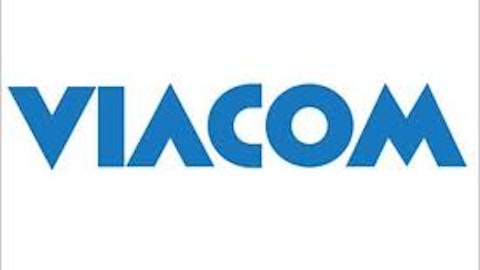Have you noticed the commercials getting longer and more frequent on sites like Hulu? Content providers are being squeezed as the price of content continues to climb, while subscription rates stay steady on a monthly basis. Those two factors are leading companies like Hulu to raise revenue from other sources as content providers reap the benefits.
Pure studio model
Lions Gate Entertainment Corp. (USA) (NYSE:LGF) is the most successful independent film and TV distribution company in the US, and the seventh-most profitable movie studio. As an independent film company, Lions Gate Entertainment Corp. (USA) (NYSE:LGF) relies heavily on the revenue it receives for creating great content. Lions Gate has created hit television series such as Weeds and Mad Men, and movies such as Twilight, the Hunger Games.
Lions Gate Entertainment Corp. (USA) (NYSE:LGF)’s success has attracted top-talent directors and producers to the company to solidify its moat, however, the creative world of entertainment can be a feast-or-famine environment. Last year, the company experienced a loss of -$0.17, and in the most recent quarter it beat expectations by $0.10 with EPS results of $0.51.
Lions Gate Entertainment Corp. (USA) (NYSE:LGF) is currently on a winning streak with the four-part Hunger Games series, but that will only sustain the company until the “next big thing” is found. Lions Gate Entertainment Corp. (USA) (NYSE:LGF) is busily pumping out movies like Now You See Me that use star- studded casts and special affects to draw in audiences.
Diversification
The downside to all of Lions Gate’s success is that it is so cyclical and it’s really hard to determine what will and will not be a blockbuster. Content provider The Walt Disney Company (NYSE:DIS) is a prime example of a well-diversified media conglomerate
The Walt Disney Company (NYSE:DIS) owns movie studios, television networks, ESPN, theme parks, and has a stake in Hulu. If The Walt Disney Company (NYSE:DIS) has a bad year at the box office, it can rely on revenue from its other divisions to keep the company afloat. However, with the Marvel and Lucas film acquisitions, Disney has secured several large and loyal followings.
The Walt Disney Company (NYSE:DIS) was just hit in its ESPN division with higher content costs and more competition as CBS and Fox News enter the sports market. This could be a real problem for The Walt Disney Company (NYSE:DIS), as the previous cash cow is seeing some neighboring cows to compete against. ESPN is bundled into Disney’s media networks division, which accounts for 46% of its revenue and nearly 70% of its profit.
Distribution networks
Netflix, Inc. (NASDAQ:NFLX) is the arch rival of Hulu. Where Netflix, Inc. (NASDAQ:NFLX) has depth, Hulu has breadth and freshness. The difference between them is the cost of content. As a Netflix, Inc. (NASDAQ:NFLX) or Hulu Plus subscriber, you pay $7.99 per month for an “all you can eat” business model. Between the two, Netflix has nearly 10 times the number of subscribers as Hulu at 30 million and 3 million, respectively.
In addition to subscription revenue, Hulu also has ad revenue from traditional video ads that interrupt the shows; these advertisement dollars allow Hulu to pay up for fresher content from the studios while keeping prices down for consumers.
Netflix, Inc. (NASDAQ:NFLX) recently struck a deal with Disney for access to its media library, and exclusivity to the company’s upcoming releases. This deal will give Netflix a much needed stream of fresh content for years to come, as the company has been criticized for having thousands of movies that nobody wants to see. This deal has the potential to keep customers paying $8 per month; individuals who may have otherwise canceled their subscriptions. For Disney, this deal gives it a way to monetize its huge archives of classic movies.
Movie studios like Lions Gate have a very delicate balancing act to play when it comes to striking contracts with content providers. On the one hand, they can gain a lot of revenue from Netflix, Inc. (NASDAQ:NFLX) by striking a contract. On the other hand, they are potentially giving up revenue from other sources as the subscriber base at Netflix increases.
Lions Gate has stuck gold with The Hunger Games series, but this company rolls the dice every time it produces a movie. The closest thing that Lions Gate has for recurring revenue is its arrangement with Paramount Studios and Viacom, Inc. (NASDAQ:VIAB) to create the EPIX pay-per-view company. EPIX then turns around and inks deals with other distributors, like Netflix, to “rent out” the combined libraries of the three partners. Without the Netflix deal, EPIX would be just breaking even over the past two years.
Lions Gate’s future is too uncertain for a conservative investor to have this stock as the lion’s share of their portfolio. Before last quarter’s earnings, the P/E ratio was higher than 90. Today, it is a more reasonable 18, but earnings are all over the board. Lions Gate has gone from $-0.33 per share in the third quarter of last year, to $0.51 per share in the most recent quarter. Next quarter, Lions Gate is expected to earn only $0.09 per share next quarter. How is an investor supposed to sleep at night with their portfolio contingent on a studio pumping out great movies all of the time?
Foolish bottom line
Lions Gate has produced some recent great hits with both the Twilight and Hunger Games series. This has lead to an equally large run-up in the stock price. Considering the company operates exclusively in the content-production industry, I’m going to pass on picking up shares of Lions Gate anytime soon.
A more well diversified company like Disney may not give you a giant pop when it releases the next billion-dollar movie because of its size, but a couple of duds will not be detrimental to its share price, either. Disney’s business model follows Warren Buffett’s first rule of investing more closely: “Never lose money.” Disney’s diversification can provide shareholders exposure to content creation and value for years to come.
Wes Patoka has no position in any stocks mentioned. The Motley Fool recommends Netflix and Walt Disney. The Motley Fool owns shares of Netflix and Walt Disney.
The article Content Creation Is King, or Is It? originally appeared on Fool.com and is written by Wes Patoka.
Wes is a member of The Motley Fool Blog Network — entries represent the personal opinion of the blogger and are not formally edited.
Copyright © 1995 – 2013 The Motley Fool, LLC. All rights reserved. The Motley Fool has a disclosure policy.






